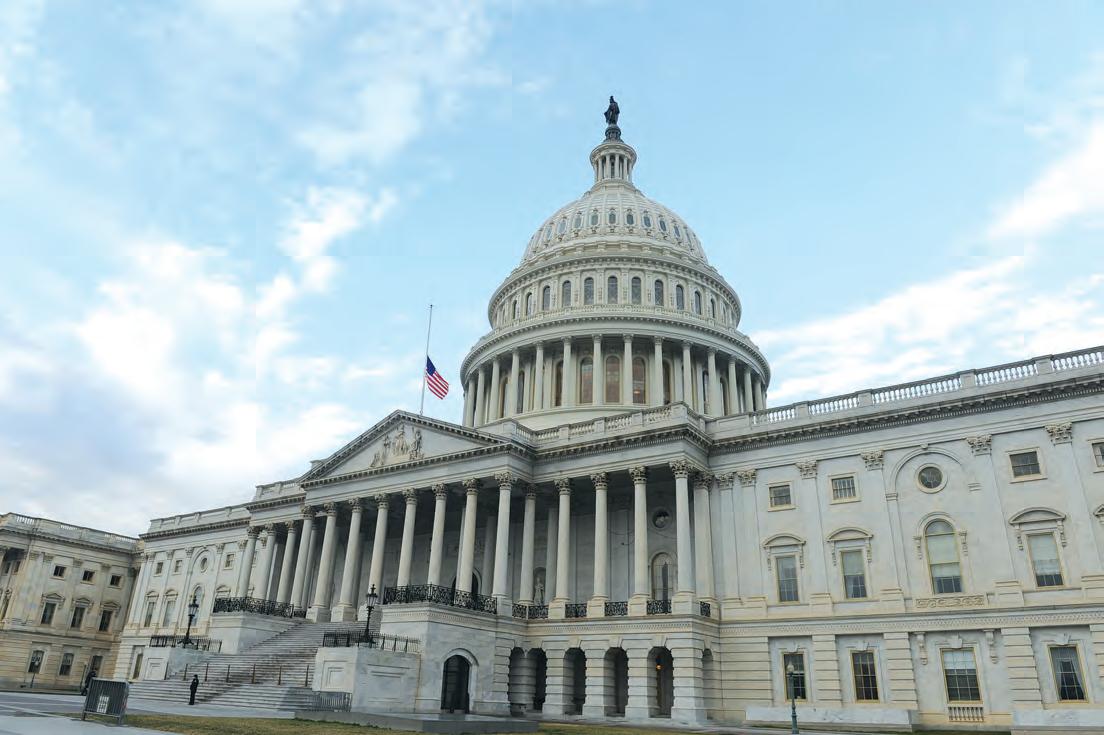SPIRIT
A WORD OF TORAH
A Stiff-Necked People
RABBISACKS.ORG
I
t is a moment of the very highest drama. The Israelites, a mere 40 days after the greatest revelation in history, have made an idol: a Golden Calf. God threatens to destroy them. Moses, exemplifying to the fullest degree the character of Israel as one who “wrestles with God and man,” confronts both in turn. To God, he prays for mercy for the people. Coming down the mountain and facing Israel, he smashes the tablets, symbol of the covenant. He grinds the calf to dust, mixes it with water and makes the Israelites drink it. He commands the Levites to punish the Rabbi Lord Jonathan wrongdoers. Then he Sacks re-ascends the mountain in a prolonged attempt to repair the shattered relationship between God and the people. God accepts his request and tells Moses to carve two new tablets of stone. At this point, however, Moses makes a strange appeal: “And Moses hurried and knelt to the ground and bowed, and he said, “If I have found favor in Your eyes, my Lord, may my Lord go among us, because [ki] it is a stiff-necked people, and forgive our wickedness and our sin, and take us as Your inheritance.” Ex. 34:8–9 The difficulty in the verse is self-evident. Moses cites as a reason for God remaining with the Israelites the very attribute that God had previously given for wishing to
42
|
FEBRUARY 17 • 2022
abandon them: “I have seen these people,” the Lord said to Moses, “and they are a stiff-necked people. Now leave Me alone so that My anger may burn against them and that I may destroy them. Then I will make you into a great nation.” Ex. 32:9 How can Moses invoke the people’s obstinacy as the very reason for God to maintain His presence among them? What is the meaning of Moses’ “because” — “may my Lord go among us, because it is a stiff- necked people?” The commentators offer a variety of interpretations. Rashi reads the word ki as “if ” — “If they are stiff-necked, then forgive them.” Ibn Ezra and Chizkuni read it as “although” or “despite the fact that” (af al pi). Alternatively, suggests Ibn Ezra, the verse might be read, “[I admit that] it is a stiff-necked people — therefore forgive our wickedness and our sin, and take us as Your inheritance.” These are straightforward readings, though they assign to the word ki a meaning it does not normally have. THE BRIGHT SIDE OF OBSTINANCE There is, however, another and far more striking line of interpretation that can be traced across the centuries. In the 20th century it was given expression by Rabbi Yitzchak Nissenbaum. The argument he attributed to Moses was this: “Almighty God, look upon this people with favor,
because what is now their greatest vice will one day be their most heroic virtue. They are indeed an obstinate people … But just as now they are stiff-necked in their disobedience, so one day they will be equally stiff-necked in their loyalty. Nations will call on them to assimilate, but they will refuse. Mightier religions will urge them to convert, but they will resist. They will suffer humiliation, persecution, even torture and death because of the name they bear and the faith they profess, but they will stay true to the covenant their ancestors made with You. They will go to their deaths saying Ani ma’amin, ‘I believe.’ This is a people awesome in its obstinacy — and though now it is their failing, there will be times far into the future when it will be their noblest strength.” The fact that Rabbi Nissenbaum lived and died in the Warsaw ghetto gives added poignancy to his words. Many centuries earlier, a Midrash made essentially the same point: “There are three things which are undaunted: the dog among beasts, the rooster among birds and Israel among the nations. R. Isaac Ben Redifa said in the name of R. Ami: “You might think that this is a negative attribute, but in fact it is praiseworthy, for it means: ‘Either be a Jew or prepare to be hanged.’” Jews were stiff-necked, says Rabbi Ami, in the sense that they were ready to die for their faith. As Gersonides (Ralbag) explained in the 14th century, a stubborn people may be slow to acquire a faith, but once they have done so they never relinquish it. We catch a glimpse of this extraordinary obstinacy in an episode narrated by Josephus, one of the first recorded incidents of mass non-violent civil disobedience. It took place during the reign of the Roman emperor Caligula (37-41 CE). He had proposed placing a statue of himself in the precincts of the Temple in Jerusalem and had sent the military leader Petronius to carry out the task, if necessary, by force. This is how Josephus describes the encounter between Petronius and the Jewish population at Ptolemais (Acre): “There came 10,000 Jews to Petronius at Ptolemais to offer their petitions to him

















